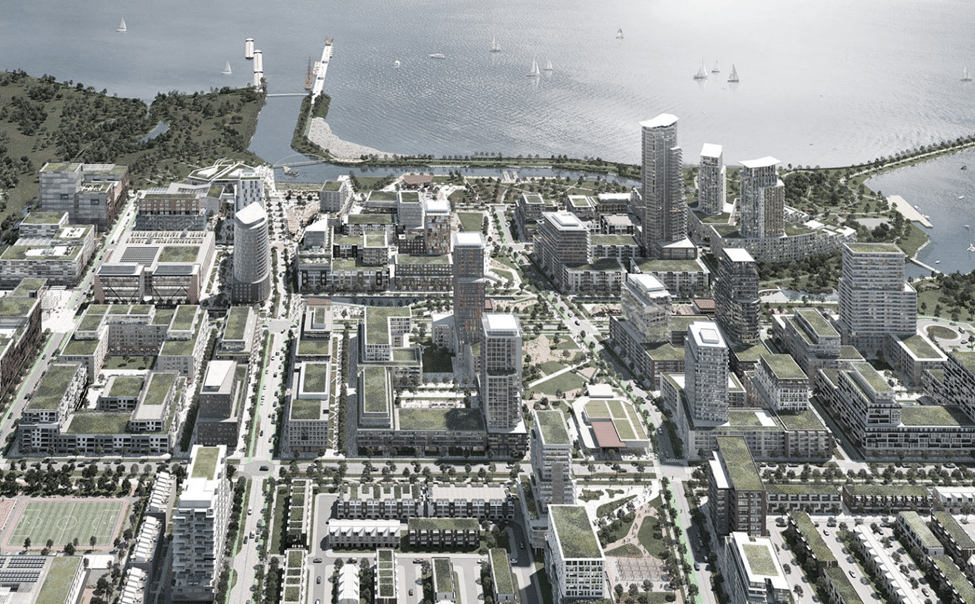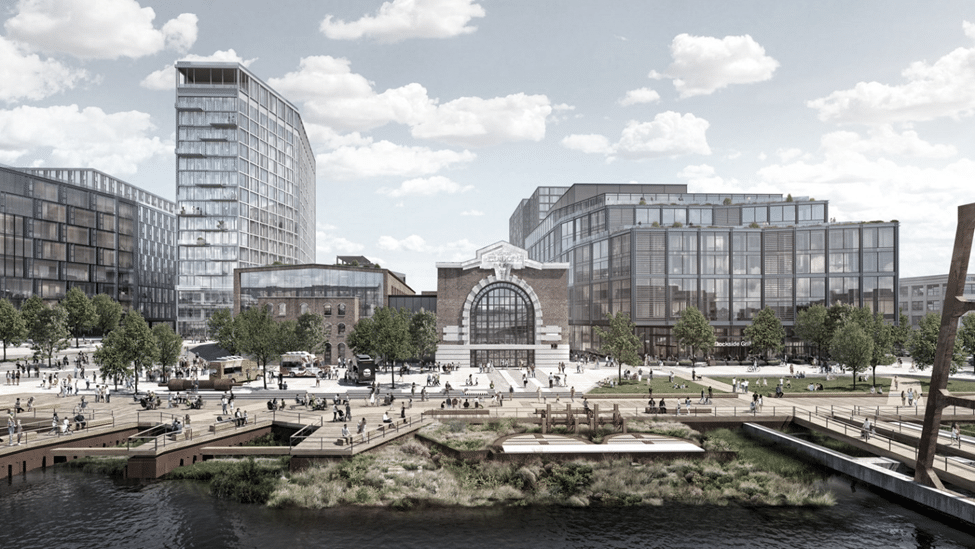By: Melissa Smith
In the realm of urban development, brownfield sites present a unique challenge and opportunity. These neglected parcels of land, once teeming with industrial or commercial activity, have fallen into disuse, often leaving behind environmental concerns and a blighted appearance. However, where some see an insurmountable problem, urban design visionaries like Renyi Zhang see the potential for revitalization and innovation. As an architect with the prestigious design firm Perkins&Will, Renyi Zhang has become a leading figure in transforming these derelict spaces into vibrant hubs of community life and ecological recovery.
Renyi Zhang’s exploration of brownfield redevelopment is highlighted by his significant contributions to two major projects during his tenure at Sasaki, another leading design firm, prior to his move to Perkins&Will. These projects, Lakeview Village in Mississauga, Canada, and 776 Summer Street in Boston, USA, demonstrate his dedication to environmentally sustainable solutions and thoughtful urban design.

Photo Courtesy: Renyi Zhang
Situated on the grounds of a former bustling coal power station, the Lakeview Village project represents a shift from a symbol of industrial blight to one of revitalization. Renyi Zhang’s significant role during his time at Sasaki was pivotal in redeveloping this extensive site into a thriving, mixed-use neighborhood, in line with the master plan’s vision for resilient urban design and ongoing development. This plan crafts a lively public area framed by an array of architectural designs, enhancing connections from Lakeshore Road to Lake Ontario alongside the picturesque Waterfront Trail. Integrating expansive green spaces like the carefully positioned Ogden Park and Lakefront Park, arranged in a unique upside-down “T” layout, Renyi Zhang orchestrated a design that not only augments the visual links to the lake but also cultivates a community-focused environment. These parks and linked public spaces encourage direct interaction with nature and nurture community bonds among the 28,000 residents and workers, plus the multitude of daily and event visitors. Through these initiatives, Renyi Zhang has played a crucial role in establishing an appealing and sustainable setting that enriches interactions among individuals and their natural surroundings.

Photo Courtesy: Renyi Zhang
Renyi Zhang’s endeavors at 776 Summer Street narrate a compelling tale of transformation, akin to his other projects. Originally the Edison Power Plant, this location faced substantial environmental remediation hurdles. With the innovative design solutions, which included transforming the historic turbine halls into dynamic retail and communal spaces, played a pivotal role in repurposing the site while respecting its industrial legacy. Facing Boston’s Reserved Channel, the redevelopment plans to include approximately 5.7 acres of public outdoor space, with a 2.5-acre waterfront area that integrates industrial motifs from the site’s historical narrative. These changes not only honor the site’s and neighborhood’s histories but also convert the area into a secure, inviting public realm enriched with amenities and opportunities for various events and activities. Through these efforts, Renyi Zhang has significantly shaped the site into a lively, community-focused environment.
What sets Renyi Zhang apart is not just his technical expertise, but his visionary approach to urban design. He sees beyond the immediate task of physical redevelopment; he understands the profound impact these projects can have on community wellbeing and environmental sustainability. His efforts at Lakeview Village and 776 Summer Street are testaments to his belief that brownfield redevelopment plays a crucial role in shaping healthier cities.
Renyi’s work aligns seamlessly with Perkins&Will’s ethos—creating places that reflect their context while addressing global challenges like climate change and social equity. This synergy between individual conviction and organizational mission exemplifies how dedicated professionals within influential firms can drive significant positive change in our urban landscapes.
Brownfield developments are complex endeavors requiring meticulous planning, deep understanding of environmental issues, and sensitivity towards community needs. By successfully navigating these challenges at The Lakeview Village and 776 Summer Street projects, Renyi Zhang has not only enhanced local environments but also provided blueprints for future redevelopment initiatives worldwide.
As we look towards an increasingly urbanized future fraught with environmental uncertainties, architectural thinkers like Renyi Zhang offer hope. His contributions demonstrate that with creativity, dedication, and strategic thinking, even the most neglected spaces can be reborn as vital parts of our urban fabric.
Moreover, these projects serve as critical reminders of our collective responsibility towards sustainable development practices in 2024. In transforming brownfields into flourishing communities or green spaces while preserving historical elements when possible—we mitigate pollution levels, promote biodiversity, and maintain cultural heritage. We also foster social cohesion, too, which is part of essential components for thriving metropolitan areas.
It is clear from Renyi’s ) working experience that he not only possesses exceptional skills as an architect, but also embodies the ethos of forward-thinking urban design experts who are reshaping our cities for the betterment of future generations. Despite facing inevitable obstacles inherent in such ambitious undertakings, his optimism and resilience shine through every project. He is an inspiration to those in the field who transform cities with urban design.
Renyi Zhang’s dedication and passion towards creating more livable and sustainable cities is core to his work. He is a success story detailing how human ingenuity can make a difference, no matter what scale or complexity lies ahead.
Published by: Khy Talara

